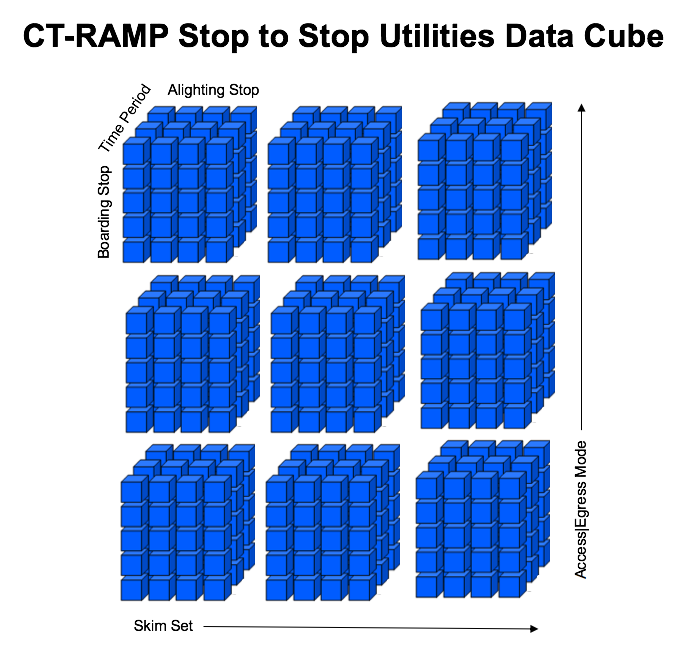Activity-Based Model Speedup and Calibration/Validation
Chicago Metropolitan Agency for Planning
The Chicago Metropolitan Agency for Planning (CMAP) chose RSG to improve their activity-based travel demand model and to fully calibrate and validate it to local data. The goal of the work was to make the model more relevant and useful for planning studies. The CMAP model simulates daily travel patterns for the 10-million-person Chicago metro area to help the region forecast and plan for future travel needs. The model system implements multiple zone systems for different scales of network level-of-service, including traffic analysis zones for auto travel, microzones for nonmotorized travel like bike and walk, and transit stop areas for transit travel.
Prior to our updates, the model required more time to run since all transit path-building and modeling of transit level-of-service was entirely individualized; this was done to provide a framework for generating and exploring alternative understandings of transit path utility. This also meant the model was not aggregated like traditional travel demand models. To improve model speeds, RSG classified persons into willingness-to-walk groups and pre-calculated (i.e., cached) complex path utility information. Our work helped the model run approximately five times faster—making overnight model runs now possible, which is needed for regional transportation planning project schedules. With the improved software in place, our work shifted to systematic regional model calibration and validation to ready the model for use in regional transportation planning.
Related Reports & Publications

